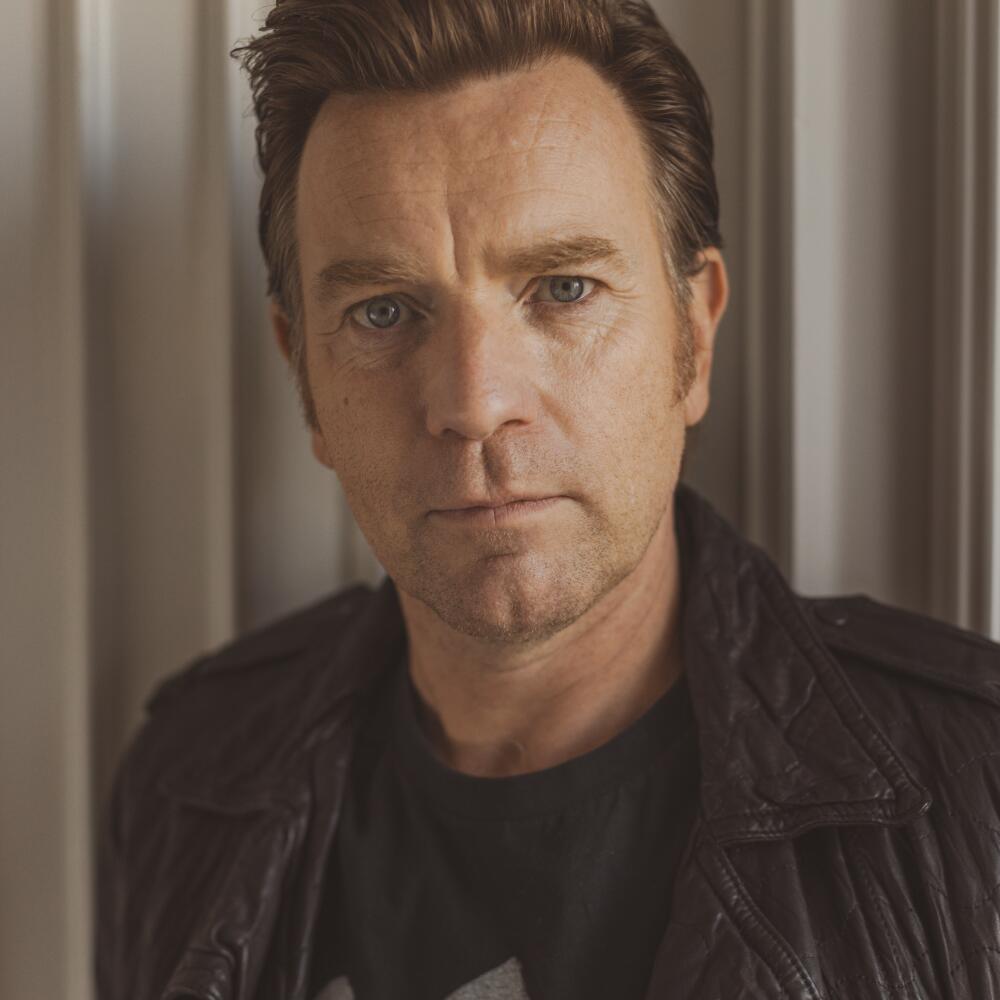
- Share via
Ewan McGregor is swiping through his camera roll, looking for the picture that explains why he will never grow another mustache — unless a job requires it. And even then, he’d probably argue that the character should be clean-shaven. Dalí without a mustache? Surreal.
Before our conversation, I had resolved not to ask McGregor anything about facial hair. It seems that most of the interviews he’s done to promote his terrific Paramount+ With Showtime limited series “A Gentleman in Moscow” have spent an inordinate amount of time focusing on the mustache he grew to play Count Alexander Ilyich Rostov, a Russian nobleman sentenced to house arrest in a luxurious hotel following the 1917 revolution. Over four decades (and eight episodes), the good gentleman learns to let go of formalities and appreciate simple pleasures and embrace family.
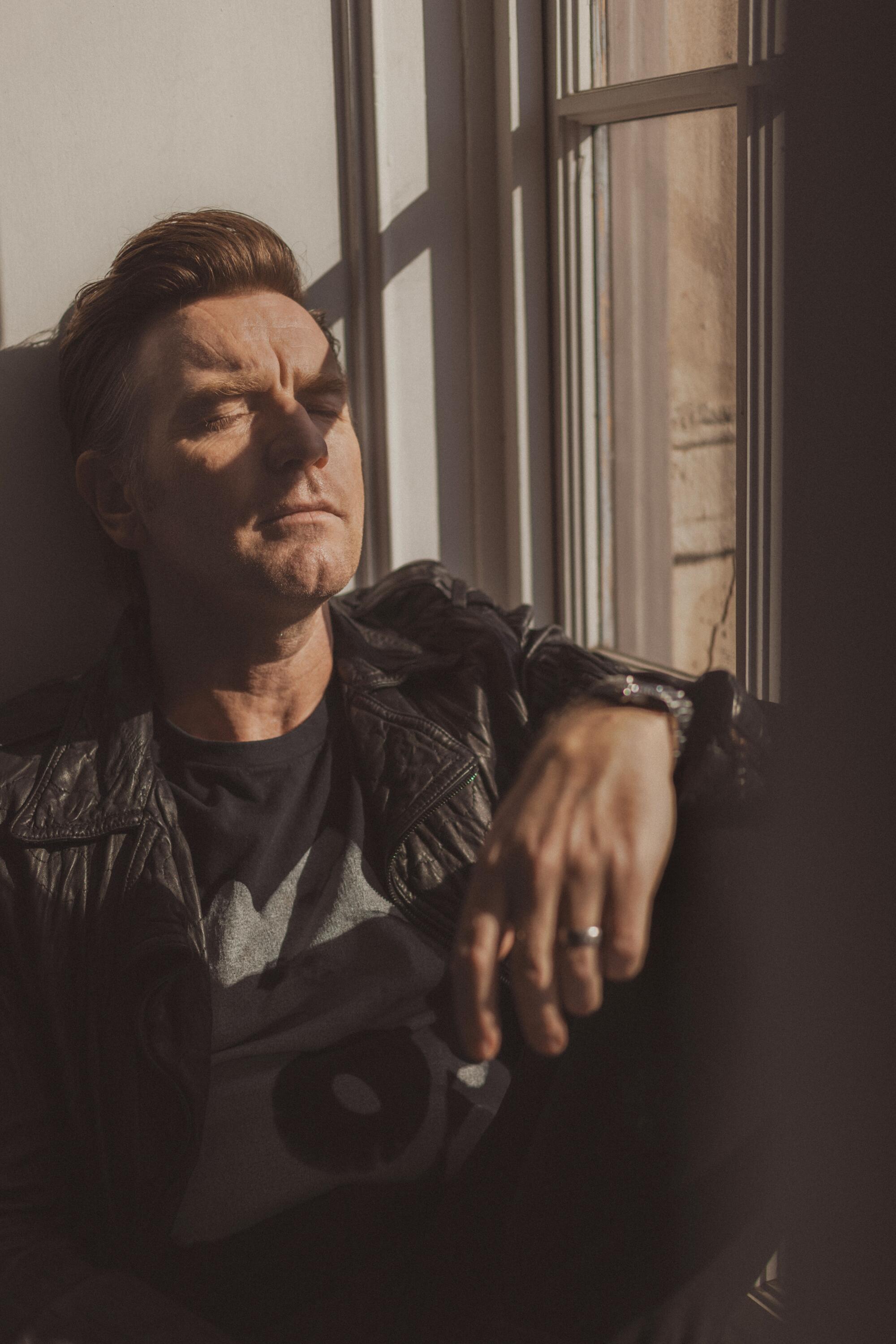
But he never shaves off that damn mustache.
Ewan McGregor stars as a Russian nobleman under house arrest after the 1917 revolution in the Paramount+ with Showtime adaptation of Amor Towles’ novel.
McGregor keeps scrolling. He’s in Atlanta, shooting “Flowervale Street,” a movie so secret that when he mentions its name, he immediately panics. “Oh, no. I’m worried that I just blew the title.” When I tell him it’s out there, he’s relieved. He wrapped shooting at 6:30 this morning, and here he is with me on Zoom, 4½ hours later. “I’m somewhat upside down, but it’s all good,” he says.
And he’s not that out of it, because when I tell him all I know about “Flowervale Street” is that David Robert Mitchell (“It Follows,” “Under the Silver Lake”) wrote and directed it, and it’s a mystery, and it might be set in the 1980s, and it might have dinosaurs, he says, smiling:
“Well, I’m not at liberty to discuss that in any way, so it could be in the ’70s with, you know, rodents. But it’s great fun.”

He finds the photo. He’s with his son, Laurie, who was just shy of 3 when it was taken. McGregor’s hair is light brown. His mustache is blond. He grimaces, saying, “There’s something about my blondie mustache that doesn’t look good on my face.” The picture was taken last year during the actors’ strike, which interrupted the filming of “A Gentleman in Moscow” with eight days remaining on the schedule. During the break, McGregor kept the mustache, grew a beard and waited. When shooting resumed in January, he finished his scenes and shaved it all off five minutes after production wrapped.
“There’s me in the makeup chair,” McGregor says with glee, finding another shot in his camera roll.
The experience of making this show is why I wanted to be an actor.
— Ewan McGregor on ‘A Gentleman in Moscow’
“I’m getting the feeling you’re never growing a mustache—”
“... again,” he interrupts, finishing my sentence. “Once it goes white, maybe. Then I think it might look good. Like, for instance, you’d look great with a mustache.” Which is funny because the last time I grew a beard, my kids, then little, called me Obi-Wan.
“There are worse things they could call you, believe me,” McGregor says, laughing.
McGregor played Obi-Wan Kenobi in the three “Star Wars” prequels and returned to the role for the 2022 Disney+ limited series. Shortly before we spoke, he surprised fans attending a 25th-anniversary showing of “The Phantom Menace” at the Atlanta Film Festival. He likes doing these kinds of drop-ins. A few years ago, he showed up at the El Capitan in Hollywood at 2 in the morning between films in a “Star Wars” marathon.
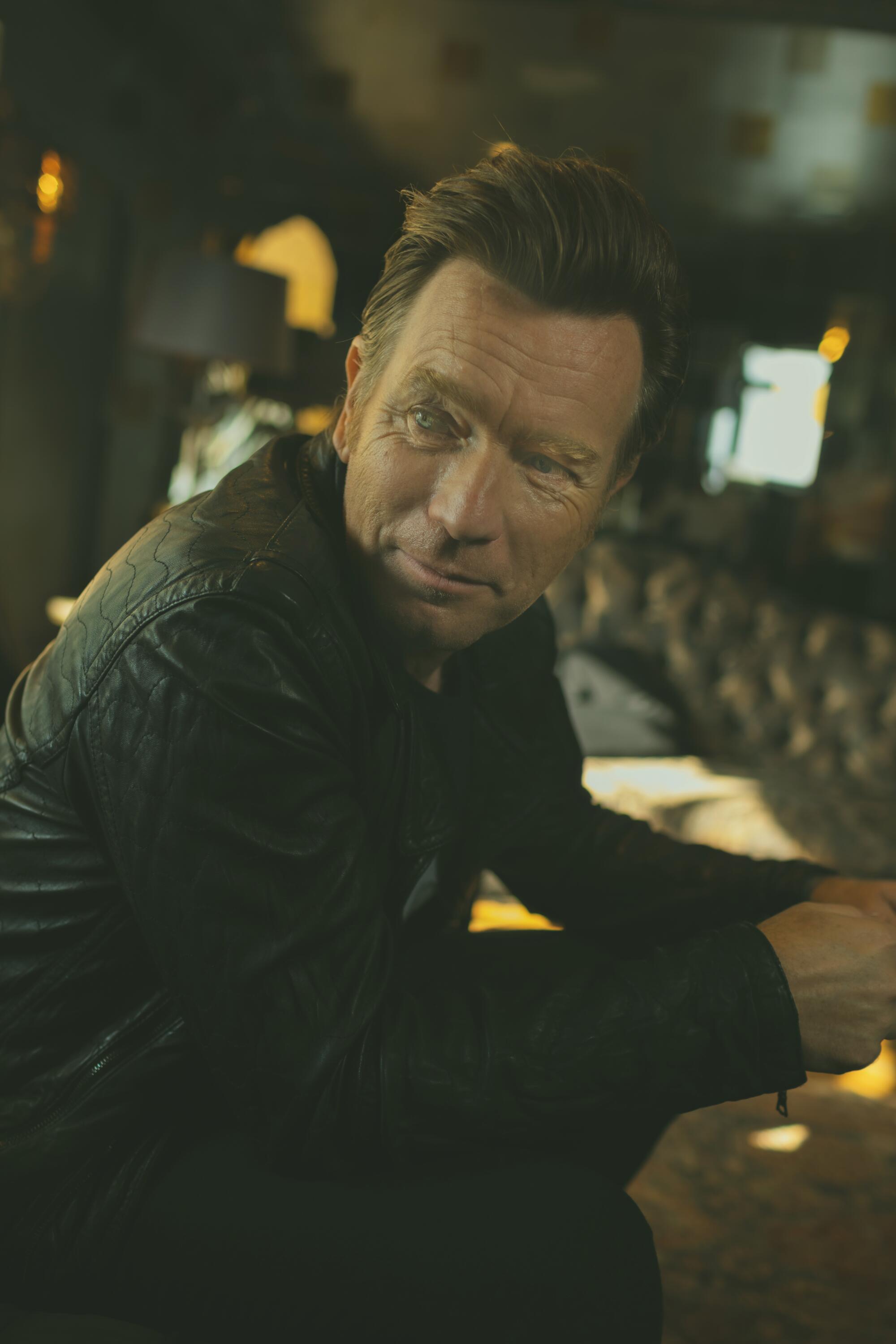
“They’re all in sleeping bags and blankets,” McGregor says. “It’s a good laugh. And it’s good for the ego when they give you a big cheer when they weren’t expecting you.”
Critics mostly hated “The Phantom Menace” when it was released, but the George Lucas-directed movie has been reassessed as the years have passed.
“We made the film for kids, but we didn’t hear from them then because they were kids and there was no Instagram, no social media. They didn’t have a voice like they do now,” McGregor says. “All we had was the critics and the noise of the people who didn’t like it. But those kids have grown up, and those movies are now their ‘Star Wars’ trilogy. It’s nice for me, that. Because at the time, the reaction was rough.”
We get to talking about the idea, explored in “A Gentleman in Moscow,” that less is more and the contentment that comes from casting aside what no longer serves us.
“You realize what things are not you,” McGregor says. “I’m 53. But I’ve got lots of friends who are about to be 60. And I keep noticing, watching shows on television, young people referencing 60 like it’s really old!” He stops, laughing. “You’re like, ‘Wait a minute.’ But it’s also learning about who you are, isn’t it? And you let go of the things that you don’t need.”
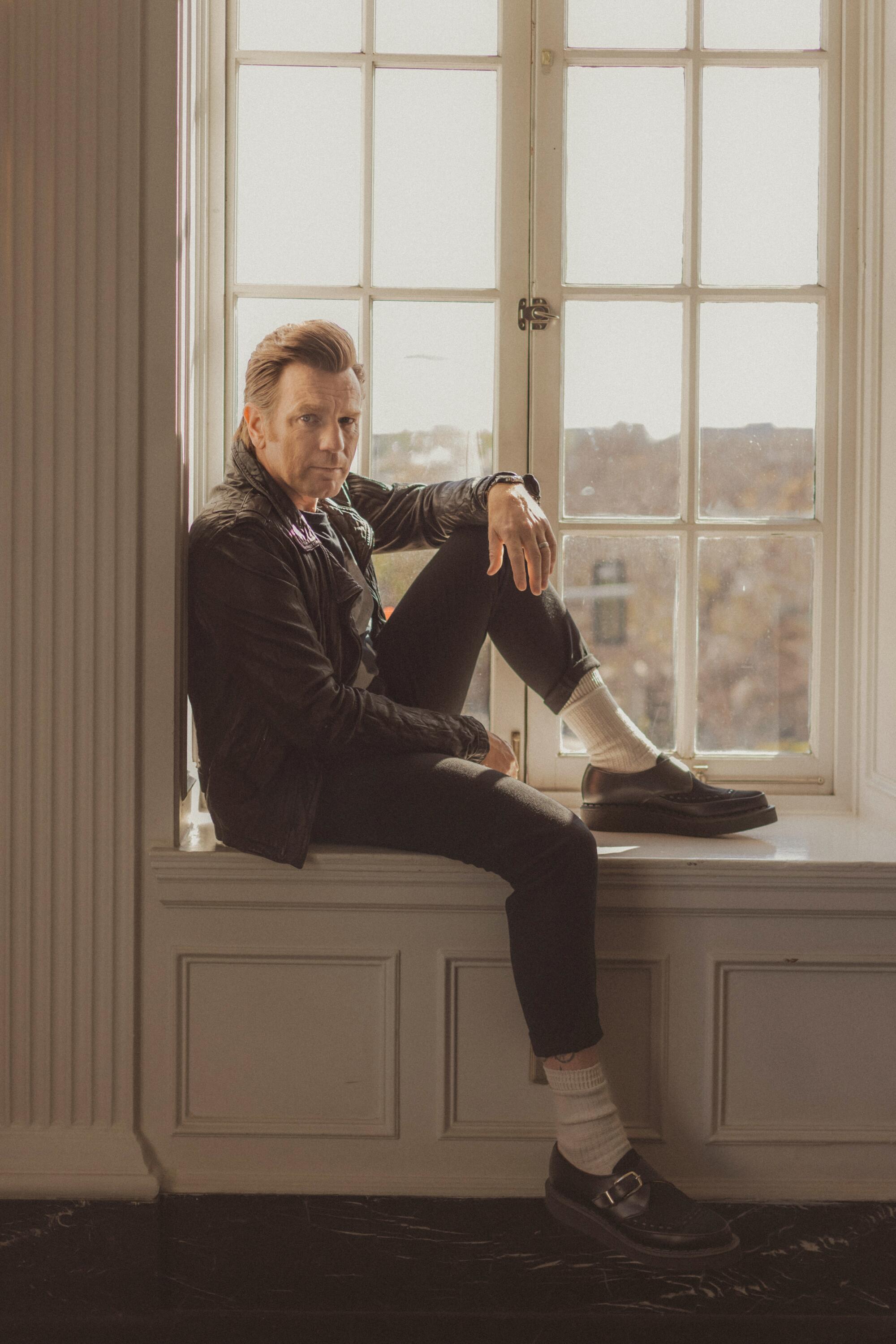
The funny thing about McGregor, though, is that he’s someone who picks up hobbies quickly, becomes obsessed with them and then moves on to the next thing, never quite letting them go. He can ride a unicycle. He can play the guitar. He can blow a few tunes on the bagpipes. There’s always something going on. It used to be that he’d beat himself up over knowing how to do a lot of things moderately well as opposed to mastering a single talent. Now he just accepts that’s how he is. He can go out to his shed, look at the unicycle he hasn’t used for three years and know that someday he’ll give it another go.
“What about the bagpipes?” I ask. “Are they in the corner somewhere, gathering dust?”
“They are at the moment,” McGregor says. “But they will get blown again.”
It turns out McGregor is even more interested in talking about the bagpipes than about his “Moscow” mustache. It wasn’t that long ago, in fact, that he broke out his bagpipes. This last year, he was in his native Scotland for Hogmanay, the country’s new year celebration. He was out with his brother, who repeatedly called out for songs that McGregor didn’t know. “C’mon, shut up. I don’t know that one,” McGregor kept telling him.
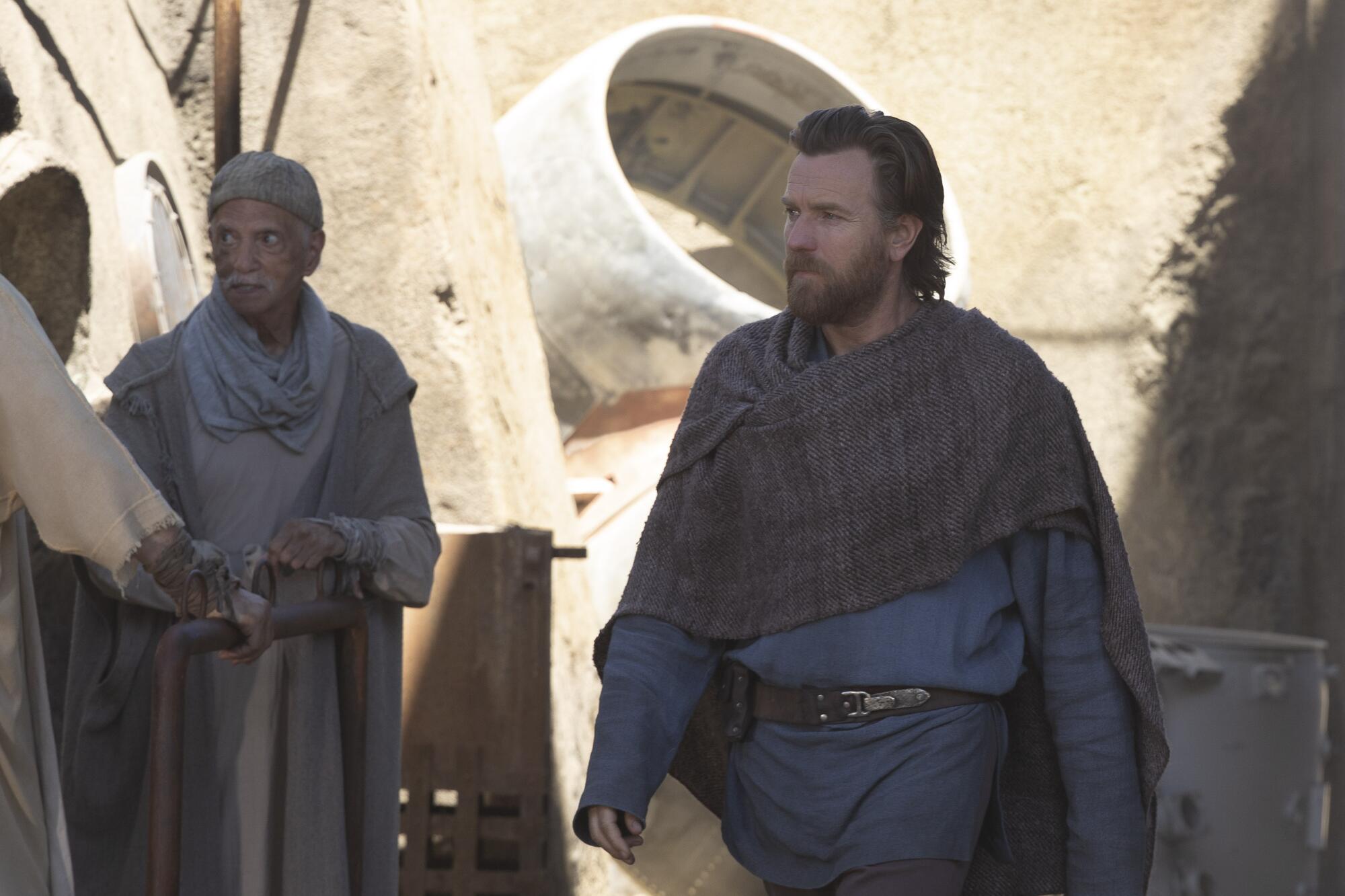
When he was a kid, McGregor was a drummer in a pipe band. He never thought he’d be a piper because as a drummer, that would be, in his words, “going over to the dark side.” But when he was shooting the 2011 film “Salmon Fishing in the Yemen” in the Scottish Highlands, he met a piper and, inspired by being home, bought some bagpipes and found a teacher in London. He took the pipes with him to the set of his next film — he won’t name it, but it was a “miserable” experience (“f— slow, like I was under house arrest”) — and asked the transport guy to put his trailer next to the generator.
“I’m the first actor in history to ask that, because usually you want to be as far away from the generator as possible because it’s so noisy,” McGregor says. “But it was perfect because I could blow my bagpipes for hours on end and no one could hear it because I was next to the drone of the generator.”
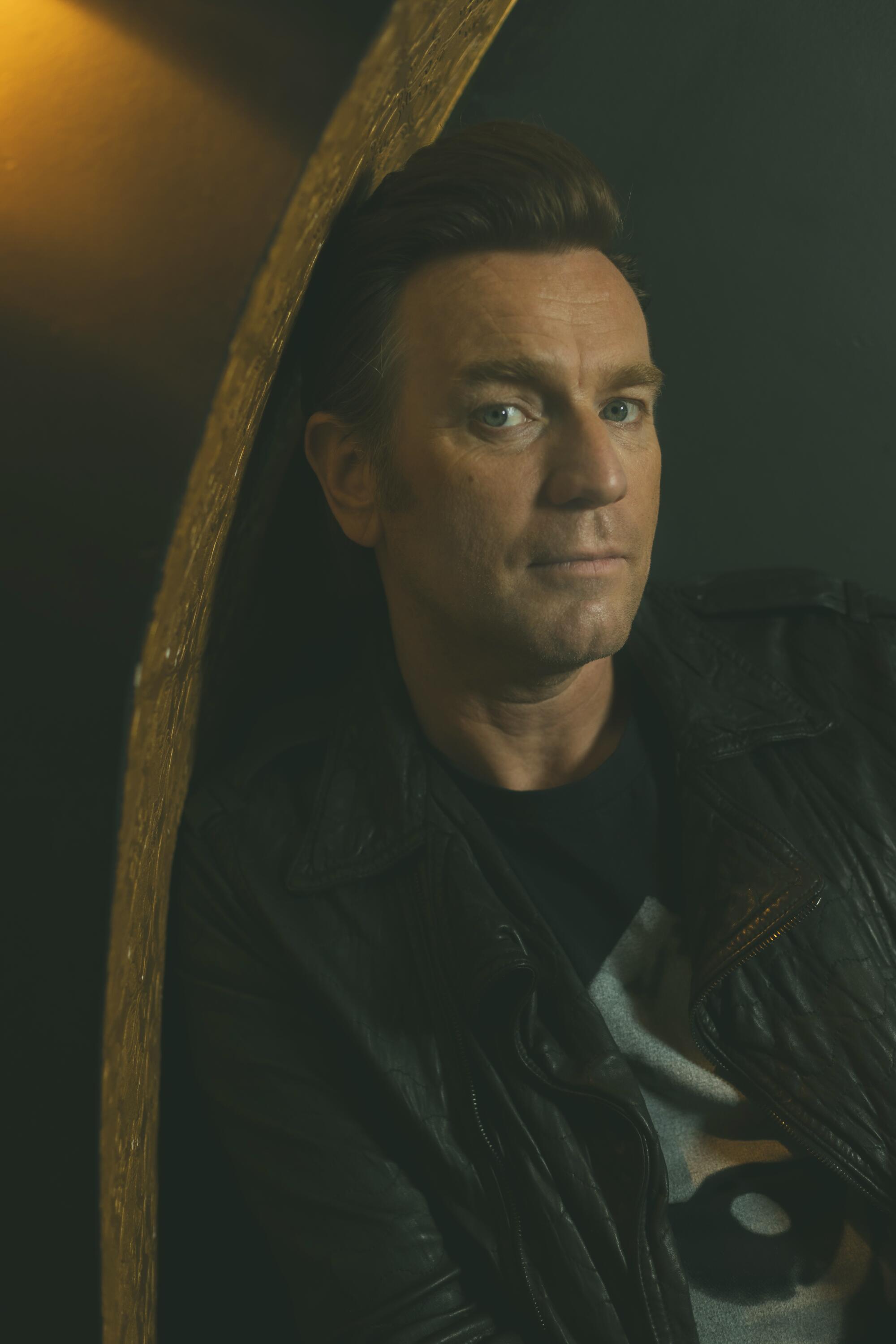
Hearing these stories, it’s easy to see why McGregor loved “A Gentleman in Moscow,” a series that asked him to learn how to do a number of different things — age a character over decades, play a father and a lover, explore the inner life of a man well versed in grief and loss who never loses his zest for living.
“The experience of making this show is why I wanted to be an actor,” McGregor says. “It’s such a beautiful piece; it leaves you thinking, ‘God, I hope there’s another one out there somewhere in the future.’ But who knows?”

“He’s so charming, but I resist using that word because it’s reductive,” says “Moscow” showrunner Ben Vanstone. “There’s so much thought and skill that goes into his performance, all of his performances, really.”
Vanstone says McGregor’s count ages 31 years in the series, not including what we see of the character in childhood flashbacks. But because the character’s mental burdens grow lighter over time, McGregor believes he becomes more relaxed and, in many ways, younger. He learns to live.
Circling back to what he said earlier about young people calling his friends almost ancient at 60, I ask McGregor how old he feels these days.
“I feel 53. I feel exactly where I am,” he replies. “I don’t want to be 35. I want to feel the age that I am.”
Is that because, I ask — adding that I’ve known him for so long now, almost an entire hour, so I can presume some insight — he wouldn’t trade the wisdom and experiences he’s accumulated to shave off a few years?
“No, I wouldn’t,” McGregor says. “I’m not afraid of aging. I’m not afraid of getting older. I’m not afraid of dying. I’m just so happy. I’m a lucky, lucky man.”
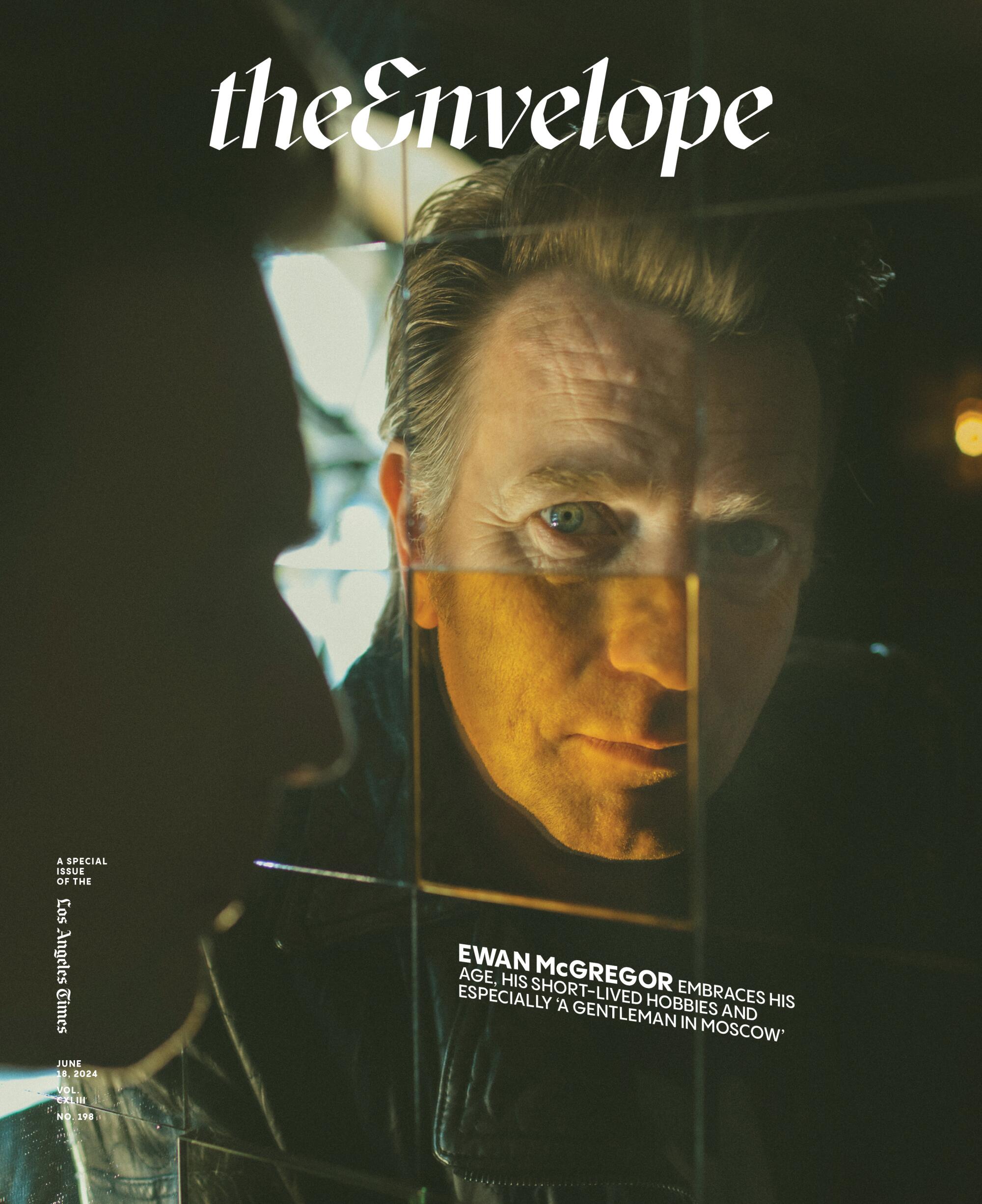
More to Read
From the Oscars to the Emmys.
Get the Envelope newsletter for exclusive awards season coverage, behind-the-scenes stories from the Envelope podcast and columnist Glenn Whipp’s must-read analysis.
You may occasionally receive promotional content from the Los Angeles Times.












